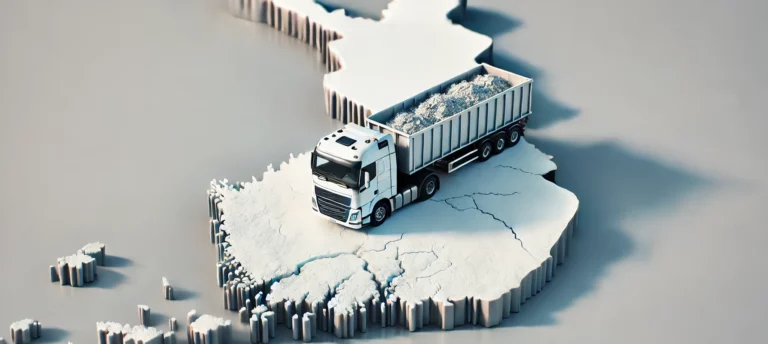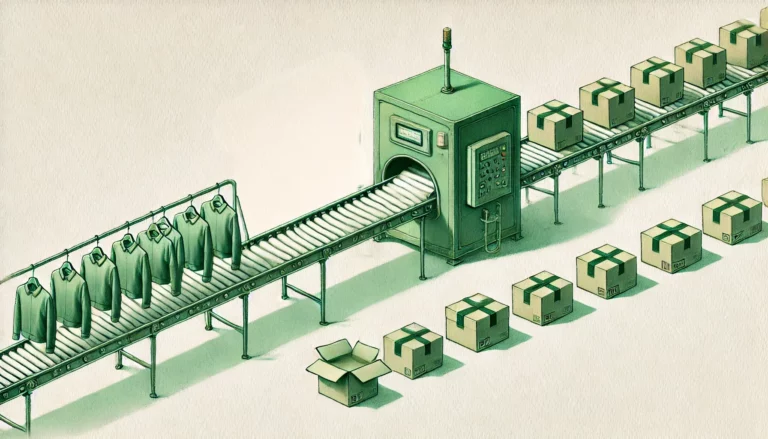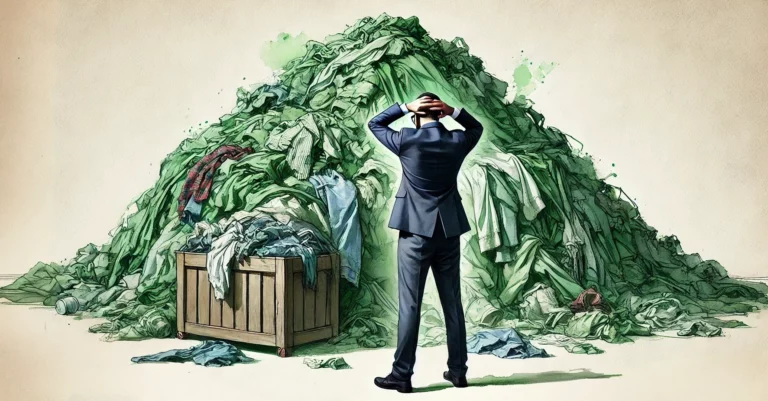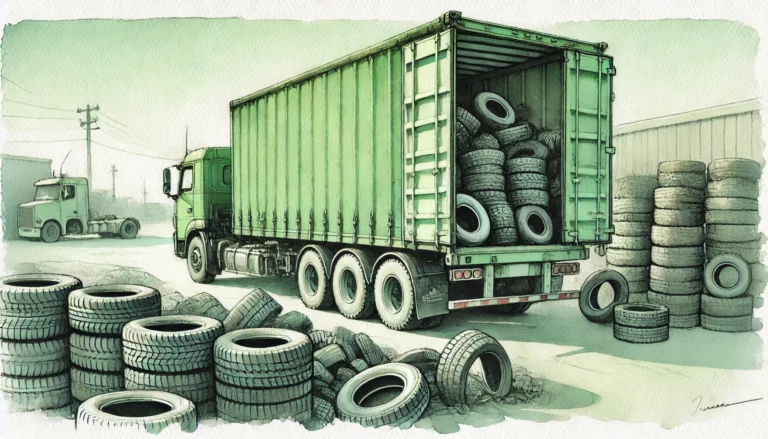More and more waste. Less and less time. Are you ready?

Europe is drowning in waste, with over 2.2 billion tonnes generated in 2022 alone. Does your company know what to do when waste stops being a cost and starts being a real threat to business continuity?
More waste, more problems
There is a growing problem in Europe that affects us all - and literally. In 2022, as much as 2.233 million tonnes of waste will be generated within the European Union. Although this is a slight decrease compared to 2010 (-0.5%), waste from the non-mineral sector increased by 3.3% to reach 1.77 tonnes per capita.
This is no coincidence, but the result of the economy's dynamic rebound after the pandemic and increased consumption. Industry has expanded, shops are filling up again and people are buying more. And while this means an increase in turnover, it also increases the pressure on companies. Because every product will one day become waste. And without a proper management system, waste quickly stops being a cost - it becomes a threat.
Production is growing - recycling too, but too slowly
The graph is based on the report "Waste statistics", published by the on the Eurostat website.
The average EU citizen produces 5 tonnes of waste per year, of which `more than 500 kg is municipal waste. According to the 2022 data, in terms of the percentage increase in waste generated by individual countries, Estonia tops the list (7491%), followed by Bulgaria (3761%), and the infamous podium is rounded off by Belgium (2963%). Poland is in 7th position (2094%).
Radical changes are therefore needed to meet the EU's 2030 targets. The talk is of halving residual waste and achieving a recycling rate of at least 65%.
Increased waste production is not just a figure, but a real risk. Rising waste volumes mean a greater burden on collection, treatment and reporting systems. If recycling solutions are implemented too slowly, many countries and companies may not be able to keep up with the pace of change.
Waste management a problem? Contact with us
Real risks of excess waste
Companies without specialist support may not notice when waste becomes a problem. As a result:
- Waste will pile up in warehouses - resulting in loss of space and sanitary risks.
- Waste will not be collected in time - disrupting the supply chain and blocking production.
- Illegal exportation or stockpiling can develop - and this risks sanctions and criminal liability.
- The easier it will be for documentation errors to occur - which will result in administrative penalties.
- There will be a payment backlog - no one will pay for the outstanding waste, and disposal costs money after all.
Without expert help, waste management can get out of hand. Entrepreneurs need to understand: every mistake costs money.
Waste advisor: your guide to chaos
A consultant is not just a consultant. He is a guide through the intricate world of regulations, logistics and environmental responsibility. His job is not just to give advice, but to actively support companies in effective and legally compliant waste management.
He starts by conducting an audit and analysis of waste streams to identify areas where waste can be reduced and recovery and recycling rates can be increased. Thanks to his knowledge of the market, he is able to identify reliable hauliers who have the necessary permits and ensure timely service delivery.
The consultant organises the logistics and supervises the schedules, thus avoiding the backlog of waste in the warehouse. At the same time, he/she verifies the treatment sites, making sure that the waste goes to installations with up-to-date environmental decisions and certificates proving effective recycling.
Support in record-keeping and the operation of the BDO system is also an extremely important part of his work. The correctness of records and compliance of documents is a key element of operational security, especially during possible audits.
A good advisor ensures that the client's activities follow the waste hierarchy - from waste reduction, recovery and recycling to final disposal as the last option. This is a guarantee not only of compliance with regulations, but also of conscious resource management.
Time works against you. How does waste punish inaction?
The waste problem is growing. However, this is not a reason to panic, but a moment for decision. Because although companies have no control over rising consumption, they can decide how they will react.
Waste management is not a risk - it is an opportunity.
A chance to reduce costs, improve processes, enhance reputation. The condition? Operating with a partner who knows the regulations, sees the bigger picture and knows how to act strategically. You have a choice: you can drown in paperwork, outstanding fees and uncertainty. Or you can use the expertise of experts to help turn waste into value.
Want to know how? Contact us - no obligation, just concrete help. We will show you the way. And we'll make sure you walk it safely.






